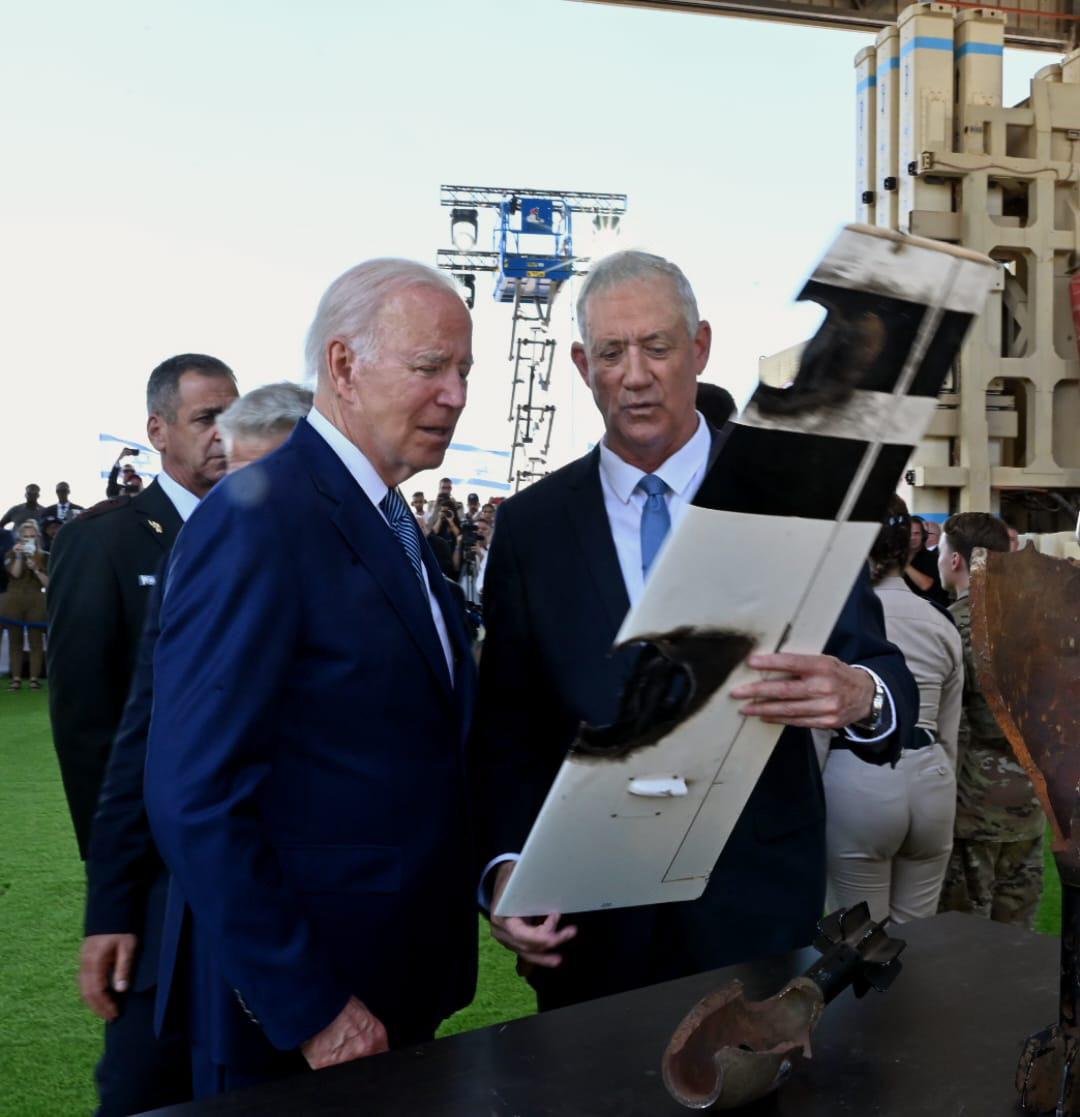Biden begins visit to Israel with laser beams, quantum computing
Besides cooperating on the Iron Dome anti-missile system, the U.S. and Israel agree to start new ‘high-level’ dialogue on artificial intelligence, medical innovation and a variety of technologies connected to climate change.

Israel Defense Ministry
Defense Minister Benny Gantz shows President Joe Biden a fragment from a drone aircraft that was intercepted by the Iron Beam laser system
From missile-intercepting lasers to quantum computers, President Joe Biden sought to place technology – both for military and civilian use –— at the center of his three-day visit to Israel.
Within an hour of Biden’s arrival at Ben Gurion...










